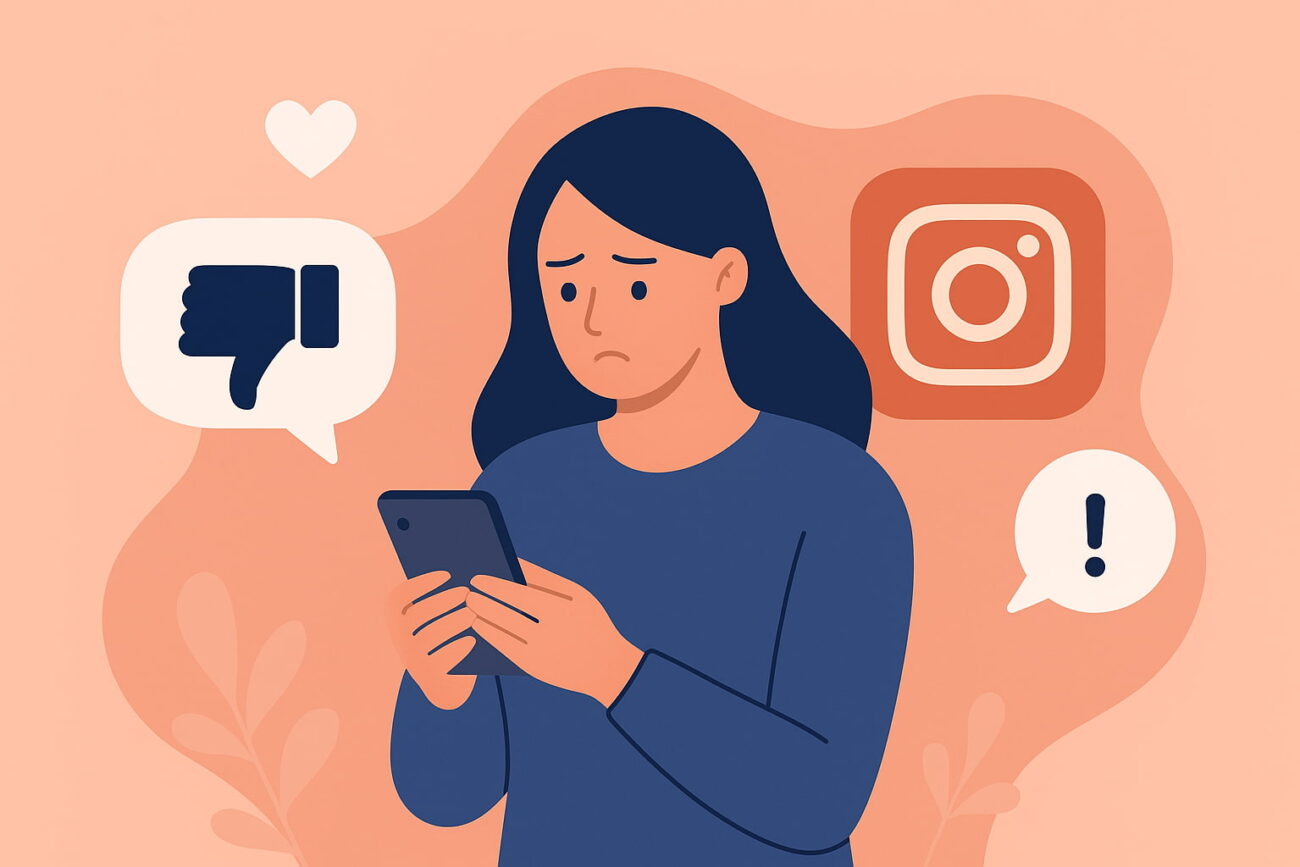Now a days social media has become an inseparable part of our lives. From sharing the photos to staying updated with global news, platforms like Instagram, Facebook, Twitter, and TikTok have changed the way we connect with peoples. However, social media offers many positives, but it also comes with hidden consequences for our minds. In the latest studies show that the impact of social media on mental health is both negative and positive, and it is shaping our emotions, self-esteem, sleep patterns, and overall happiness. Understanding these effects is crucial to finding balance in a digital-first world.
The Negative Effects of Social Media on Mental Health
While social media offers connection, it also has downsides that affect psychological well-being. Here are some of the most common negative effects:
1. Anxiety and Depression
The latest study shows that social media depression is a growing issue. One of the main reason is comparison with others. Teenagers and young adults are particularly vulnerable, as they often link their self-worth to online validation.
2. Fear of Missing Out (FOMO)
Scrolling through reels or whateveronline, attending events, or celebrating achievements can easily trigger anxiety and fear of missing out. This can lead to compulsive checking of feeds. decrease productivity and focus.
3. Poor Sleep Quality
Excessive screen time before sleep affects melatonin production, making it harder to fall asleep. Studies link high late-night usage of social media to insomnia and poor sleep habits.
The Positive Effects of Social Media on Mental Health
First of all, it’s important to recognize that social media isn’t all negative; when you are using it mindfully, it can positively contribute to mental well-being.
1. Emotional Support and Connection
Studies show that social media platforms can help people to maintain friendships, especially long-distance ones. Some online communities provide emotional support, helping individuals feel less isolated.
2. Raising Awareness about Mental Health
Campaigns on Instagram, YouTube, and X have normalized conversations about mental illness. People can share personal stories, making it easier for others to seek help from professionals.
3. Access to Information and Resources
There are countless pages and communities dedicated to therapy tips and mindfulness practices. This can easily access to mental health resources is a big positive effect of social media on mental health.
Finding Balance: Healthy Social Media Habits
Since everyone knows social media affects mental health both positively and negatively, striking a balance is key. Here are effective ways to use it without harming your mind.
- Set Screen Time Limits Restrict daily usage and track the time in settings.
- Unfollow Negative Accounts – Curate your feed to avoid comparison triggers.
- Prioritize Real-Life Connections—Meet friends in person and strengthen offline bonds.
- Practice Digital Detox – Take breaks for a day or week to reset your mind.
- Use Social Media Mindfully—Instead of passive scrolling, engage actively with meaningful content.
Scientific Studies on Social Media and Mental Health
- A Harvard study found that excessive Facebook use correlated with lower overall life satisfaction.
- Research from the University of Pennsylvania showed that reducing social media usage improved mood and reduced loneliness.
- On the positive side, studies also reveal that online support groups help people manage anxiety and depression effectively.
These findings confirm that the effects of social media on mental health depend on how we use it.
Final Thoughts
Now we are living in the digital age that has made social media an unavoidable part of daily life. While it has some drawbacks like depression, anxiety, poor sleep, and cyberbullying. The positive is it can offer opportunities for support, awareness, and connection. By understanding the impact of social media on mental health, we can make informed choices and build a healthier relationship with technology.
Author : ASIF BC

Thank you, I have just been searching for information about this topic for ages and yours is the best I have discovered so far. But, what about the bottom line? Are you sure about the source?
Woah! I’m really digging the template/theme of this blog. It’s simple, yet effective. A lot of times it’s hard to get that “perfect balance” between superb usability and visual appearance. I must say you’ve done a very good job with this. Also, the blog loads super fast for me on Firefox. Outstanding Blog!
I like this weblog very much, Its a really nice post to read and obtain information. “Never contend with a man who has nothing to lose.” by Baltasar Gracian.
I’ve been surfing online greater than three hours as of late, yet I never discovered any interesting article like yours. It’s pretty price sufficient for me. Personally, if all site owners and bloggers made good content as you probably did, the web might be much more useful than ever before. “When the heart speaks, the mind finds it indecent to object.” by Milan Kundera.